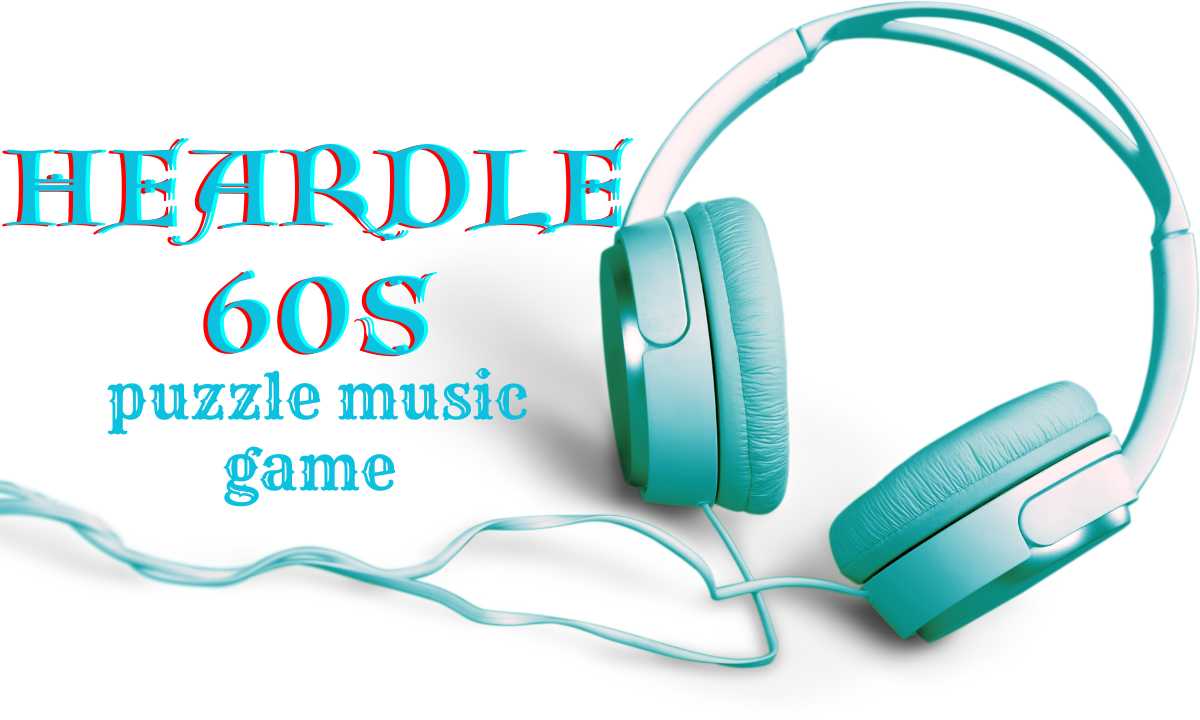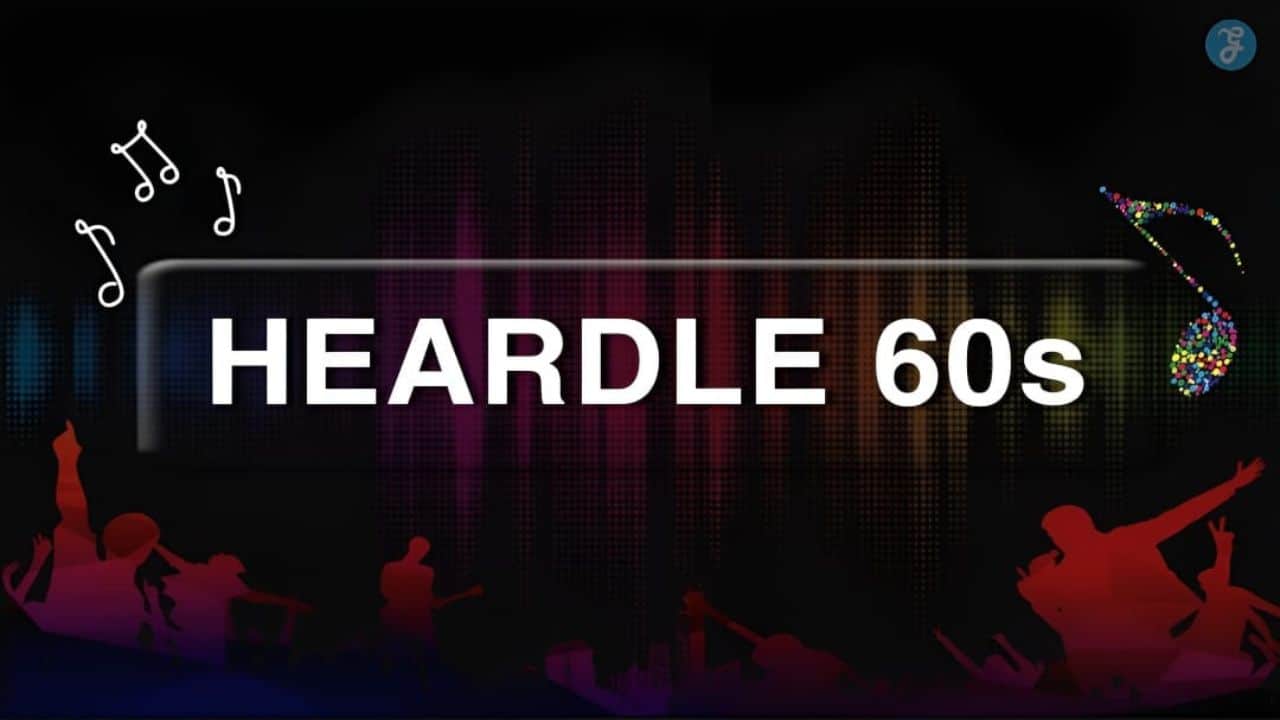In the digital era, where the intersection of technology and entertainment continually evolves, Heardle’s 60s emerges as a fascinating blend of nostalgia and modern gaming. This auditory guessing game captivates users by challenging them to identify songs from the 1960s based on short audio clips. As we delve deeper into the mechanics, benefits, and strategic approaches to mastering Heardle’s 60s, it becomes evident why this game has garnered such widespread acclaim.
Game Mechanics: How Heardle 60s Works
Heardle’s 60s operates on a simple yet engaging premise. Players are presented with a snippet of a song from the 1960s, and the goal is to guess the song title and the artist as accurately and quickly as possible. The game starts with a brief portion of the track, making the initial guess challenging. If the player cannot identify the song from the first snippet, they can unlock more of the music in increments, making it progressively easier to guess the correct answer. However, the catch is that with each additional snippet revealed, the potential for earning points decreases, adding a layer of strategic depth to the game.
The game resets daily, offering a new song each day and keeping the challenge fresh. This mechanic ensures that players return regularly, eager to test their knowledge of 60s music and improve their performance over time.
The Appeal of Nostalgia: Connecting Generations
One of the most compelling aspects of Heardle’s 60s is its ability to bridge generational gaps. For older players, the game is a walk down memory lane, rekindling fond memories of their youth through iconic tracks of the era. For younger participants, it’s an educational journey, offering a glimpse into the musical landscape of the past and perhaps sparking a new appreciation for the artists and styles that shaped the music industry.
This cross-generational appeal enriches the gaming experience and fosters a unique connection and conversation between different age groups as players share insights, stories, and trivia about the era’s music.
Cognitive Benefits: More Than Just a Game
Beyond entertainment, Heardle’s 60s offers significant cognitive benefits. Engaging with the game regularly can enhance memory, mainly auditory memory, as players recall songs and artists from the snippets provided. The process of deductive reasoning also comes into play as participants use the partial information available to make educated guesses about the songs.
Moreover, the game is a fantastic tool for broadening musical knowledge and appreciation. Players are exposed to various genres, artists, and tracks, some of which might have been outside their usual listening habits. This exposure not only diversifies their musical tastes but also deepens their understanding of the 60s musical era’s cultural and historical context.

Strategic Play: Tips for Mastering Heardle 60s
To excel in Heardle’s 60s, a strategic approach is essential. Here are some tips to improve your game:
- Active Listening: Pay close attention to the snippets. Focus on unique elements like the instrumental arrangement, vocal tone, or any distinctive audio cues that might hint at the artist or the song.
- Era Knowledge: Familiarize yourself with the 60s era. Understanding the popular genres, artists, and their famous tracks can significantly narrow the possibilities.
- Pattern Recognition: Try to recognize patterns in the types of songs the game chooses. Noticing trends in genre or artist selection can offer clues for future guesses.
- Use Resources Wisely: Take your time to unlock the following snippet. Consider your current knowledge before deciding to reveal more of the song, as this will affect your score.
- Community Engagement: Join forums or social media groups dedicated to Heardle 60s. Sharing experiences and strategies with other players can offer new insights and improve your game.
Discovering Hidden Gems: The Educational Value of Heardle 60s
Heardle 60s is not just a game; it’s an educational journey through time. Each day presents a new opportunity to discover a song from the past, some of which are iconic hits, while others are hidden gems waiting to be rediscovered by a new audience. This exploration of musical history is invaluable, offering players a deeper understanding of the cultural and societal contexts that shaped the music of the 1960s. For educators and parents, Heardle’s 60s is a unique tool to introduce younger generations to historical music trends, encouraging a broader appreciation of the arts and fostering a love for music transcending contemporary genres.
Enhancing Social Interaction: Heardle 60s as a Catalyst for Connection.
In a world increasingly dominated by digital interactions, Heardle’s 60s provides a refreshing avenue for genuine social engagement. Whether it’s discussing the day’s song with friends, family, or online communities, the game sparks conversations and debates over music preferences, memories associated with certain tracks, and friendly competition over scores. This social aspect of the game strengthens bonds between players, creating a sense of community and shared experience often lacking in today’s fast-paced digital environment.

Mental Agility and Quick Thinking: The Cognitive Challenge
The benefits of Heardle 60s extend into the realm of cognitive health. Regular engagement with the game promotes mental agility and quick thinking. Players must not only recall information from their music knowledge base but also make connections and deductions based on limited auditory information. This critical thinking and problem-solving exercise can positively affect cognitive flexibility and contribute to a sharper mind daily.
A Gateway to Musical Exploration: Beyond the 60s
While Heardle’s 60s focuses on the 1960s, its impact on players’ musical exploration often goes beyond that decade. The curiosity sparked by the game can lead players down a rabbit hole of musical discovery, exploring related genres, artists, and historical music movements. This exploration enriches players’ understanding and appreciation of music, highlighting the interconnectedness of different eras and styles in the vast tapestry of musical history.
Strategy Refinement: Learning Through Repetition and Pattern Recognition
As players engage with Heardle 60s over time, they naturally develop and refine their strategies for success. This learning process is crucial, involving repetition, pattern recognition, and the honing of listening skills. Seasoned players learn to pick up on subtle audio cues and trust their instincts, leading to faster and more accurate identification of songs. This iterative learning process improves performance in the game and enhances auditory discrimination skills that are valuable in many areas of life.

The Future of Heardle 60s: Evolution and Community Growth
Looking ahead, the future of Heardle’s 60s is bright, with potential for further evolution and expansion. Developers might introduce new features, such as themed weeks, challenges, or even collaborative multiplayer modes, to keep the game fresh and engaging. Additionally, as the player community grows, so will opportunities for shared experiences and cultural exchange. The enduring popularity of Heardle 60s underscores its appeal as a game and a phenomenon that celebrates music, memory, and community.
Conclusion: The Timeless Charm of Heardle 60s
Heardle 60s is more than just a game; it’s a cultural phenomenon that celebrates the rich musical heritage of the 1960s while engaging players in a challenging and rewarding experience. Through its simple yet captivating game mechanics, it offers a window into the past, educational benefits, and the joy of shared musical discovery. Whether you’re a seasoned fan of the era’s music or a curious newcomer, Heardle’s 60s promises a delightful blend of nostalgia, learning, and strategic gameplay. Embrace the challenge, and let the timeless tunes of the 60s guide your journey through this enchanting auditory game.

